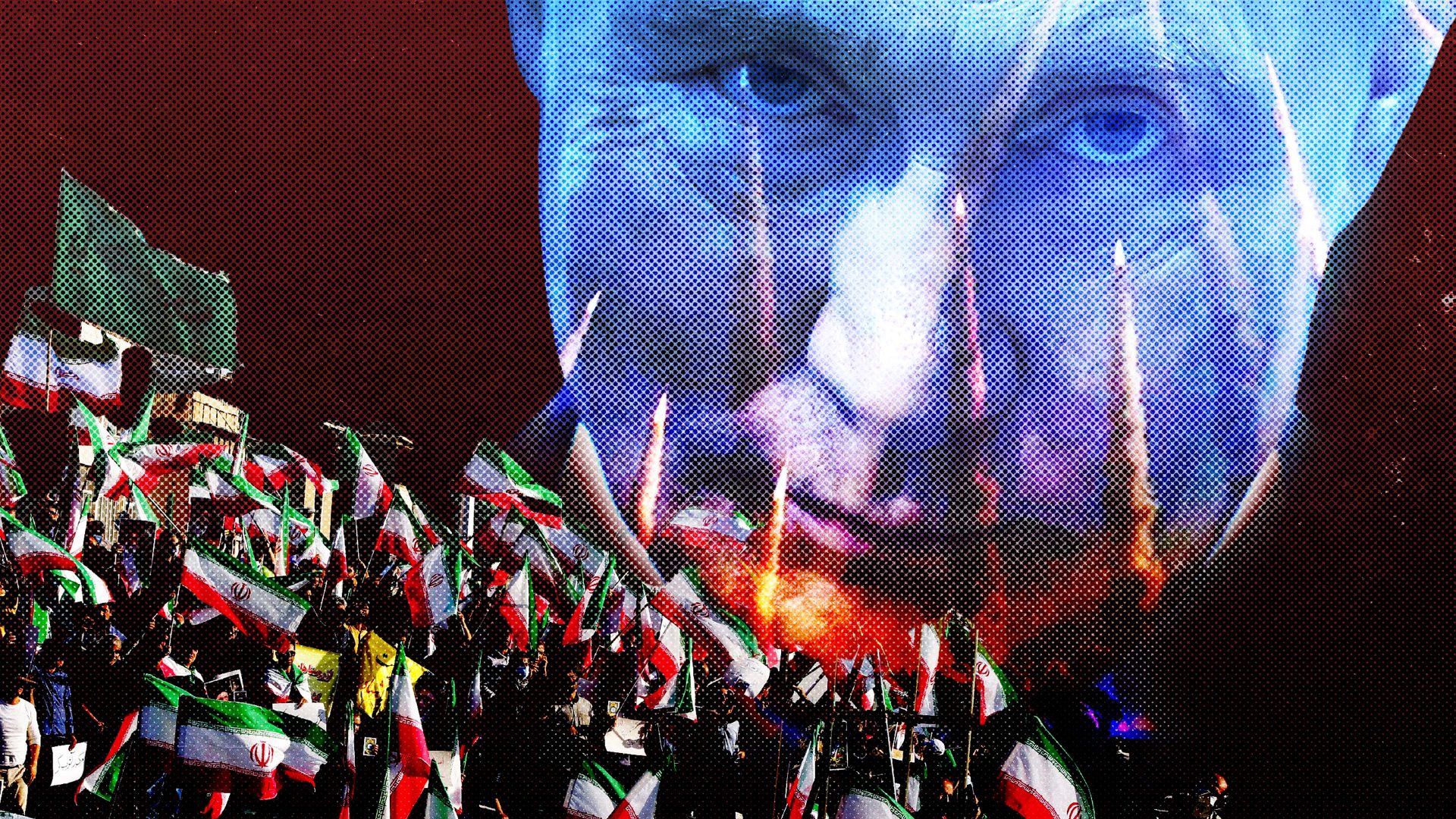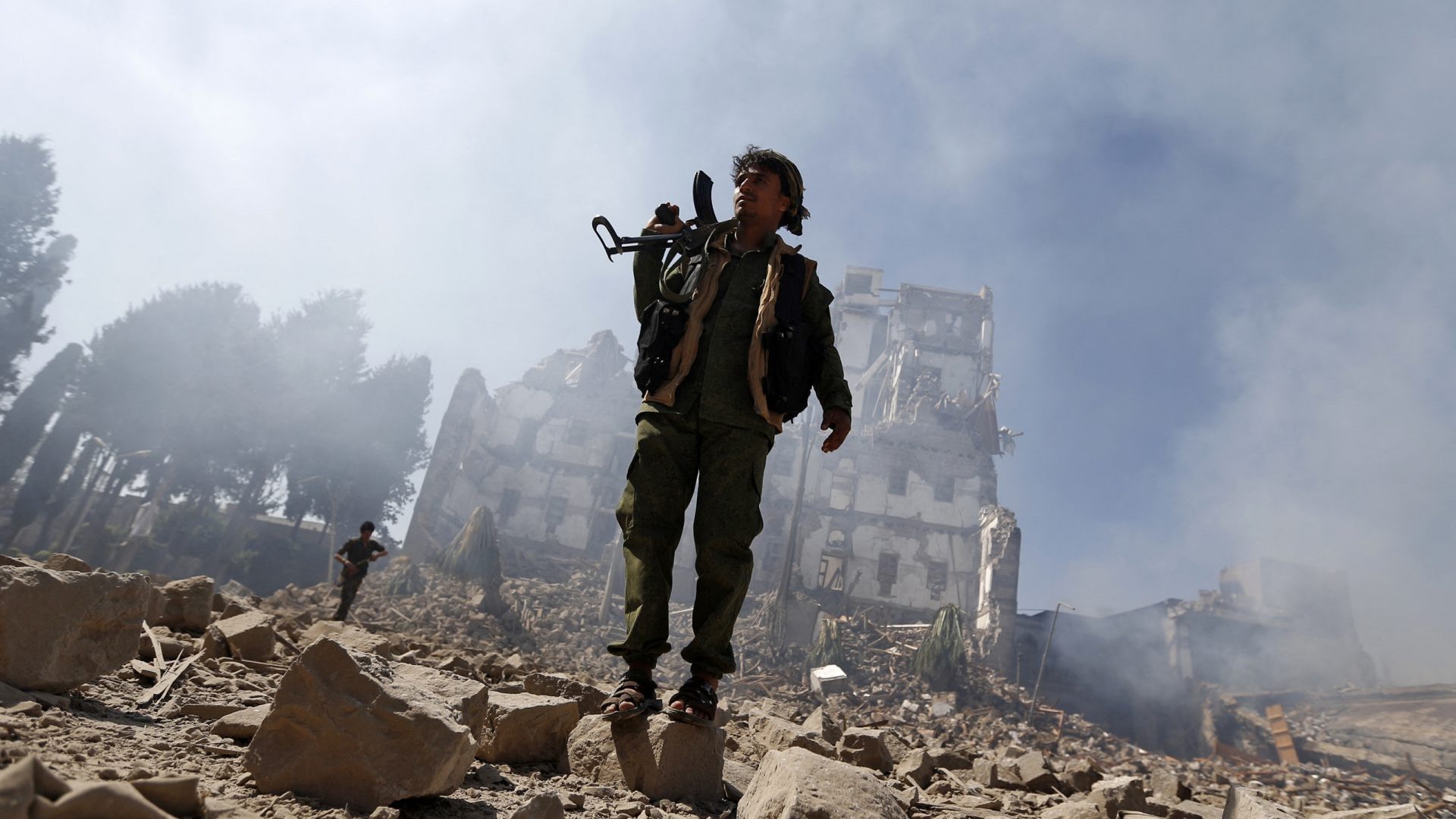The centre of gravity in the Middle East crisis is the failure over the best part of a century to resolve the question of Palestinian statehood, and that persistent issue is pulling an increasing number of actors towards its dark centre. After the assassination of Hezbollah’s leader Hassan Nasrallah and the “limited, targeted” Israeli ground raids into southern Lebanon that began on September 30 and which are gathering momentum, it is clear that Israel and Hezbollah are now at war. Iran responded by launching approximately 180 ballistic missiles towards Israel. The Pentagon confirmed that US battleships helped Israel intercept these. There is the increasing potential that other actors will now be drawn into this regional conflict. One of these is Iran’s ally, Russia.
Last Monday, Russian prime minister Mikhail Mishustin landed in Tehran to meet the Iranian president Masoud Pezeshkian, to reinforce what president Putin has hailed as Russia’s “strategic partnership” with Iran. The Kremlin said the visit focused on enhancing Russian-Iranian trade and economic cooperation, and included a new gas deal between the two countries. Despite Pezeshkian’s criticism of Israel for the killing of Nasrallah, there was no mention of military assistance to Iran.
Western governments have accused Iran of supplying ballistic missiles and drones to Russia for use in the Ukraine war. A coalition including the US, UK, Gulf states, Egypt and Jordan helped Israel thwart the missile and drone attack launched by Tehran in April and the US helped again to counter the most recent strike by Iran. So will Russia now help Iran to counter the Israeli “payback” that prime minister Benjamin Netanyahu has told the world is imminent?
Even though Iran declined the 2007 invitation to join Russia’s Collective Security Treaty Organisation, Putin’s alternative to Nato which has a similar principle of collective defence, Russia and Iran are already military allies. Since 2015, Russia has been supporting the regime of president Assad alongside Iranian forces in Syria, mostly through air strikes against the opposition. After Russia’s involvement in Syria, a gallery of posters appeared depicting Putin, Nasrallah, Assad, and Iranian supreme leader Ayatollah Khamenei, with the slogan: “Men who bow to no one but God.”
Also in 2015, Putin lifted the ban on importing the S-300 missile defence system to Iran. This was followed by a $10bn deal that included helicopters, planes and artillery systems. There have been reports this year that Russia had sold Iran their Su-35 multi-role fighter jet. Since 2019 Iran and Russia, along with China, have conducted three joint naval exercises. There are also reports that Iran is facilitating talks between Russia and Houthi militias in Yemen on anti-ship cruise missile supplies.
While some ideological, religious and ethnic divisions in the Middle East appear ancient and immutable, one of the constants in the history of the region is the shifting of alliances due to immediate, more practical concerns.
It was not always Russia that Iran turned to for arms. Prior to the Iranian Revolution in 1979, the US was the largest supplier of arms to Iran. After the storming of the US embassy in Tehran and the taking of American hostages, an arms embargo was set in place.
However, when Ronald Reagan took office in 1980, he tasked officials with secretly finding a way around the embargo due to concerns that it offered an opening for the USSR to step in and provide weapons for the Iraq-Iran War. He also believed that the deal could include Iran persuading Hezbollah to release the seven US hostages they were holding.
Despite Ayatollah Khomeini’s openly declared goal of promoting Islamic revolution, and the US’s own arms embargo, the Reagan administration sold over 1,500 missiles to Iran, with the help of an intermediary that was keen to build up its own relationship with Iran: Israel. In the mid-1980s ties became so close due to a common enemy, Iraq, that Yitzhak Rabin, the Israeli prime minister, was able to state: “Israel is Iran’s best friend, and we do not intend to change our position”.
The profits from those arms sales were directed to Contra rebels attempting to overthrow the left wing Sandinista government in Nicaragua. When the arrangement was reported by a Lebanese newspaper it quickly became a scandal known as the Iran-Contra affair. As well as providing its ally Saddam Hussein with arms to fight Iran, the USSR then began to supply arms to Iran via North Korea to fight Iraq.
Putin increasingly looks at foreign policy in terms of two questions. First, is it good for me? In other words, does it affirm my dominance as head of the Russian state, and promote Russia as a nation capable of exerting global power? And second, is it bad for the west, primarily the US, UK and EU?
Putin will have welcomed the diversion of US arms to Israel away from Ukraine. He will also have welcomed the stretching of US diplomatic bandwidth, the damaging of US credibility with those in the global south and the damage the crisis has done to the Democrats in the lead up to November’s election. A further escalation to a full state of conflict between Israel and Iran will be an interesting dilemma for him – there will be pros and cons. As much as US weapons destined for Ukraine are now destined for Israel, Iranian arms destined for Russia may now be diverted to Hezbollah or needed by Iranian forces. Managing both Iranian requests for support and Israeli protests against Russian involvement might start to stretch his own bandwidth.
Yet, it is an oversimplification to see this as a global conflict where clear battle lines are being drawn; there are regional complexities and nuances, and a complex web of shifting alliances. Russia is not a member of the “Axis of Resistance”, the network of Iranian-backed militias and political groups that share hostility towards Israel and the US. Russia has deep economic, security and energy agreements with the Arab Gulf states, most of whom would be happy to see the destruction of Hezbollah, and are on the other side of the region’s Sunni-Shia fault-line, in direct competition with Iran for regional influence.
Russia’s and Putin’s relationship with Israel is also nuanced. Despite recent critical comments Putin does not see Israel as an enemy of Russia, regardless of Israel’s close security relationship with the US. In 2016, Putin said relations with Israel were special and based “on friendship, mutual understanding and the long common history.” Putin stated: “1.5 million Israeli citizens come from the former Soviet Union. They speak the Russian language, are the bearers of Russian culture, Russian mentality. They maintain relations with their relatives and friends in Russia, and this makes the interstate relations very special”. In a meeting with Netanyahu in 2016, Putin described Israel and Russia as “unconditional allies” in “efforts to counter international terrorism.” However Russian troops have previously come into direct conflict with Israel.
The USSR remained mostly neutral in the Arab-Israeli conflict until 1955 when there was a shift to a clear position of support for the Arab states, including supplying arms and training. Relations were completely severed by the Soviet government in 1967 in protest of Israeli policy during the six-day war. Soviet forces were deployed to Egypt during the following war of attrition between 1967-70, during which they repeatedly engaged Israeli forces. The USSR did not resume diplomatic relations with Israel until 1991.
The then Israeli foreign minister, Ariel Sharon, began to court more friendly relations with Russia in the late-1990s after recognising that “the Russian vote will decide the outcome of the [Israeli] election”. Relations between Israel and Russia were improved by Israeli opposition to Nato bombing of Yugoslavia and began to substantially improve in 2000, with the election of Putin, and then a year later, with the election of Sharon as prime minister, who described Putin as “a true friend of Israel”.
Putin saw Israel as an ally in the fight against Islamic extremism. In Netanyahu’s second and third terms as prime minister the relationship has strengthened further. Putin and Netanyahu recognise similarities in each other. They are both ruthless in their pursuit of power and see themselves surrounded by existential threats that must be confronted with force. In his recently published book, Netanyahu describes Putin as “smart, sophisticated and focused on one goal – returning Russia to its historical greatness.”
Netanyahu has been cautious in his lack of criticism over Russia’s invasion of Ukraine. Israel has limited aid to Ukraine to humanitarian aid and the acceptance of Jewish refugees. In 2022, after a wave of Russian missile strikes, Zelensky criticised Israel for refusing to supply air defence equipment. However, Ukrainian-Israel relations improved as they began sharing intelligence on the Iranian drones being used by Russia.
Netanyahu has expressed his displeasure to Putin over Russia’s growing ties to Iran. The conflict in Gaza has also strained the relationship. Putin condemned the October 7 attack, has called for the release of all hostages and stated that Israel has a right to defend itself, but has also criticised Israel’s response, saying Israel should not besiege the Gaza Strip in the way Nazi Germany besieged Leningrad.
Russia has condemned Israel’s targeted assassinations of Hezbollah and Hamas leadership in Lebanon and Iran while urging Iran against any attacks that could cause civilian casualties in Israel, due to the number of Russian citizens living in Israel. In a sign of the increased tension, Israel no longer provides advance notice to Russia of its airstrikes in Syria. Russia declined to condemn the Iranian strikes in April, with a spokesperson noting that Israel did not condemn Ukrainian attacks on Russian territory.
Netanyahu’s ultimate objective has always been Iran and its nuclear programme. He is not alone in finding it unacceptable to have a near neighbour who has threatened to wipe your country off the map, having the means to do so. Removing the threat of Hezbollah clears the way to deal with Iran directly, without fear of a reprisal attack from the north. Iran could still respond with mass drone and ballistic attacks that could overwhelm Israeli air defence, use similar swarm tactics with its navy’s fast boats or use its other militias to attack targets across the region, but any of those might be seen as a price worth paying. The question is not necessarily what Iran will do next but what how far will Netanyahu go? Is his goal to goad Iran into a level of retaliation which provides him with the justification to directly attack nuclear sites across Iran? What assistance will Iran seek from Russia if this attack is forthcoming and what assistance will Putin provide?
So far it has suited Putin for the region to teeter on the edge of the precipice. He has welcomed the level of chaos that has hurt his enemies without requiring him to directly intervene, and even allow him to offer to facilitate negotiations. He will not change this stance unless he sees a clear advantage in doing so. While it suited him to fight with Iran in Syria to protect his own military bases in the country and his influence in the region through upholding a regime he sees as a client, he may not see the same advantages this time around.
An address from Hezbollah’s deputy chief Sheikh Naim Qassem this week claimed: “We are ready for a ground invasion, and we will emerge victorious.” Despite the killing of key leaders, Hezbollah will be a serious adversary for the IDF and have been preparing for this conflict for decades. Iran will have difficult decisions to make over the support it provides to Hezbollah. Iranian Foreign Ministry spokesperson Nasser Kanaani said this week that: “There is no need to send extra or volunteer forces of the Islamic Republic of Iran… we are informed and are sure that they do not need the help of our forces.”
This will likely change as the conflict evolves. As Iran in turn becomes more involved there will be difficult decisions for Putin. He will weigh up the pros and cons of any intervention, but loyalty to any allies that have served a use for him elsewhere or the human cost to any intervention – as we have seen in Ukraine – will not be part of his equation. Putin remains an agent of chaos, in a region becoming increasingly chaotic, to the great cost of so many.
Andy Owen is a former British military intelligence officer



